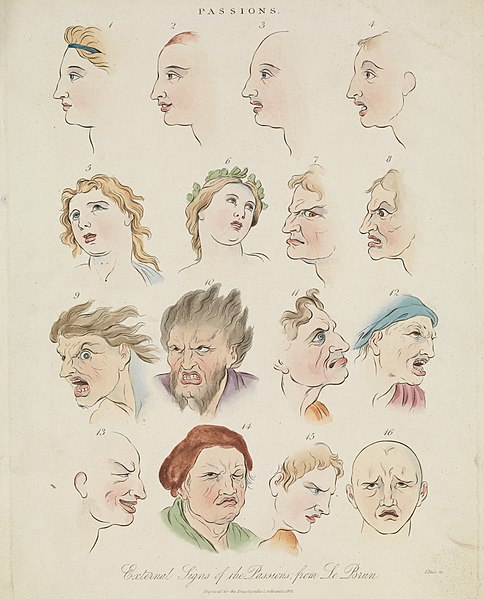Feelings are subjective self-contained phenomenal experiences. According to the APA Dictionary of Psychology, a feeling is "a self-contained phenomenal experience"; and feelings are "subjective, evaluative, and independent of the sensations, thoughts, or images evoking them". The term feeling is closely related to, but not the same as, emotion. Feeling may for instance refer to the conscious subjective experience of emotions. The study of subjective experiences is called phenomenology. Psychotherapy generally involves a therapist helping a client understand, articulate, and learn to effectively regulate the client's own feelings, and ultimately to take responsibility for the client's experience of the world. Feelings are sometimes held to be characteristic of embodied consciousness.
Sensitive, sculpture by M. Blay (c. 1910)
Emotions are physical and mental states brought on by neurophysiological changes, variously associated with thoughts, feelings, behavioral responses, and a degree of pleasure or displeasure. There is no scientific consensus on a definition. Emotions are often intertwined with mood, temperament, personality, disposition, or creativity.
Sixteen faces expressing the human passions – colored engraving by J. Pass, 1821, after Charles Le Brun


